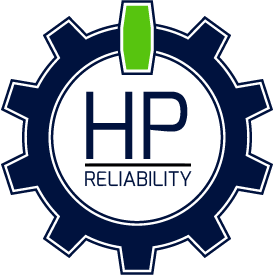What are Functions with Nancy Regan
Reliability Centered Maintenance or RCM is a philosophy that is rooted in the fundamentals of the reliability and maintenance. There are seven steps or principles of RCM that can really help you do RCM correctly. The first four steps of RCM make up FMEA and when you combine the next two with these, it gives you a FMECA baseline. With these seven steps, you can do all the wonderful things that make up a successful reliability program. In RCM, functions are where you start your journey. A function can be defined as what you need from a piece of equipment.
In this episode, we covered:
- What is Reliability Centered Maintenance?
- Learn the 7 principles of RCM!
- How can you apply RCM effectively?
- And much more!
When you have defined a function, you can record specific data and analyze it. When you are writing a function, you have to be very specific with the parameters. When a piece of equipment is doing what you want it do, you can label it as a reliable piece of equipment. When your function isn t written in an understandable way, you can t identify the failures modes, and therefore, can t analyze the data against it. So, functions help you understand a problem correctly and then come with suitable set of solutions to resolve it. If you don t define the problem, you wouldn t know what to do in the first place.
There are two types of functions; primary and secondary functions. The primary functions are the basic reason why you bought that equipment in the first place. Those are the basic requirements that you need from your asset and then, there are secondary functions that support and facilitate your primary functions such as safety, response time etc. How you identify and define your primary and secondary functions depends upon your type of business. You will also need to write your functional failures well as they help you to avoid pitfalls.
These can be defined as the inability of an asset to perform a function and are easy to define but they really contribute to the RCM analysis. Once you have defined functional failures, you need to have a good facilitator who is well versed in RCM techniques. He should be able to listen to the team and then discuss any problems he might observe with them. He should be taking into account other parameters such as operating context of the equipment and facilitate his team as best he can. That team should be skilled and trained well in order to have good performance in the field.
Well defined functions will help you understanding the problem that the team might face with the equipment and once you have successful mitigated that problem, you can improve your functions with time. You will be able to really define your primary and secondary functions once you have understood your assets and occurring problems. You can communicate these functions better as well. The organizations really need to take functions into account while they are designing the equipment. They should have mindset that allows for such pre-emptive work. RCM isn t easy but it s simple and it works wonders when applied correctly.
Eruditio Links:
Nancy Regan Links:
- Nancy Regan LinkedIn
- LinkedIn Articles
- Facebook Page
- RCMTrainingOnline.com
- Reliability-Centered Maintenance (Norwlan & Heap, 1978
- Reliability-Centered Maintenance, 2nd Ed. by John Moubray
- The RCM Solution: A Practical Guide to Starting and Maintaining a Successful RCM Program by Nancy Regan
- Napoleon Hill s books
Rooted In Reliability podcast is a proud member of Reliability.fm network. We encourage you to please rate and review this podcast on iTunes and Stitcher. It ensures the podcast stays relevant and is easy to find by like-minded professionals. It is only with your ratings and reviews that the Rooted In Reliability podcast can continue to grow. Thank you for providing the small but critical support for the Rooted In Reliability podcast!
The post 168-What are Functions with Nancy Regan appeared first on Accendo Reliability.

